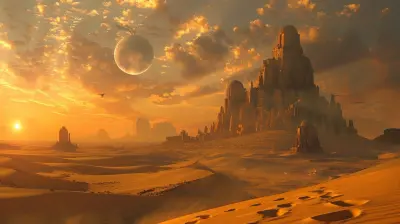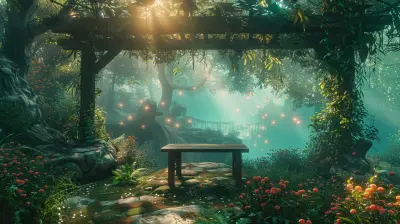How Open World Games Redefined Player Freedom
23 July 2025
Open-world games have undeniably changed the landscape of gaming. Think about it—what other genre lets you climb mountains just because they’re there, steal a random horse in a village miles away from your objective, or spend hours fishing instead of saving the world? Open-world gaming isn’t just a genre; it’s an experience that has revolutionized what it means to give players true freedom. But how exactly did this transformation happen, and why does it feel so groundbreaking? Buckle up, because we’re diving deep into how open-world games redefined player freedom.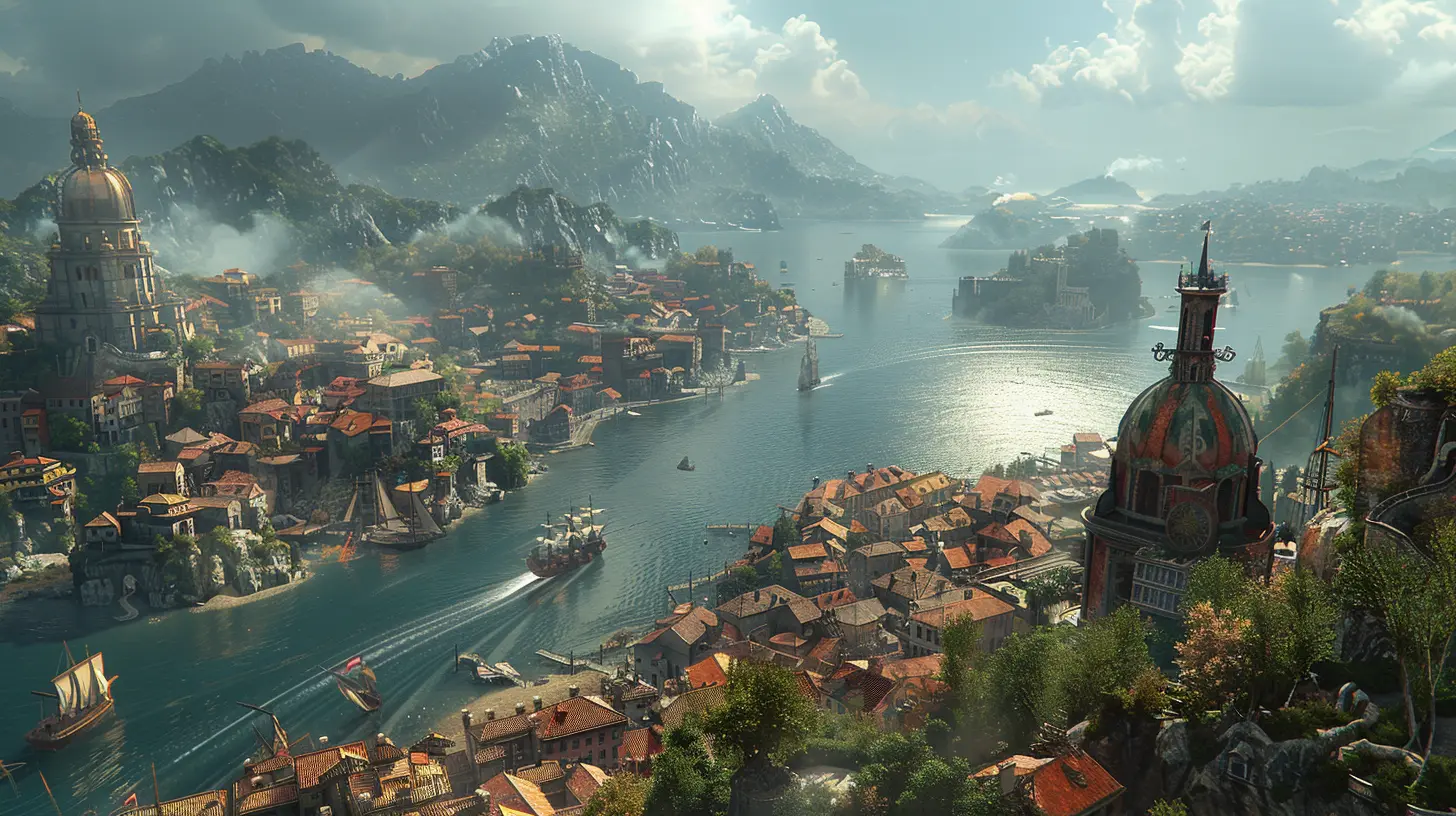
What Are Open World Games?
Before we get into how they rewrote the rulebook, let’s break this down. Open-world games are a type of video game where you’re dropped into a massive map with the freedom to roam, explore, and do what you want, often without rigidly defined boundaries. Think of it like a “choose your own adventure” story but on steroids. Games like The Legend of Zelda: Breath of the Wild or Grand Theft Auto V epitomize this concept.But here’s the kicker: open-world games didn’t just give us bigger maps—they gave us choices. And those choices? They fundamentally changed how we, as players, interact with games. 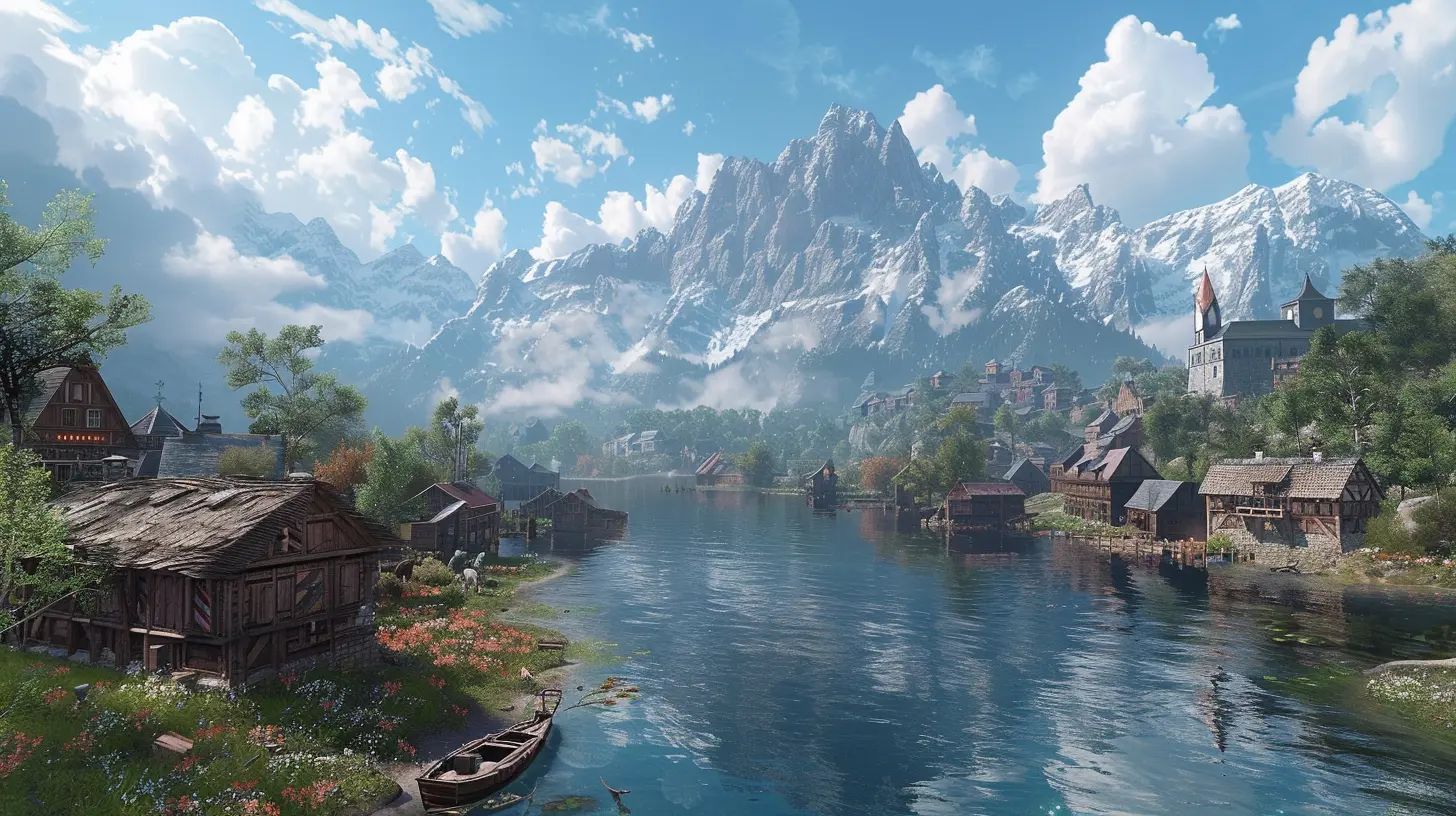
From Linear Levels to Limitless Sandboxes
The Roots: Linear Storytelling
Back in the day, most games had a fixed route. You played a level, completed your objective, and moved on to the next one. It was controlled and predictable—a bit like running through a hallway with fancy wallpaper. Don’t get me wrong; those games were fun (hello, Super Mario Bros.), but they didn’t offer much wiggle room.Enter the Sandbox
Then came the sandbox revolution. Titles like GTA III turned the industry on its head by saying, “Hey, here’s a city. Do whatever you want.” You weren’t locked into a single path anymore. Want to follow the story? Go for it. Prefer to spend hours wreaking havoc with a stolen tank? Be our guest. This freedom let players feel more connected to the game world, making it their own personal playground.Think of it this way: linear games are like guided tours, while open-world games are like handing you a map, a bottle of water, and saying, “Have fun out there.” 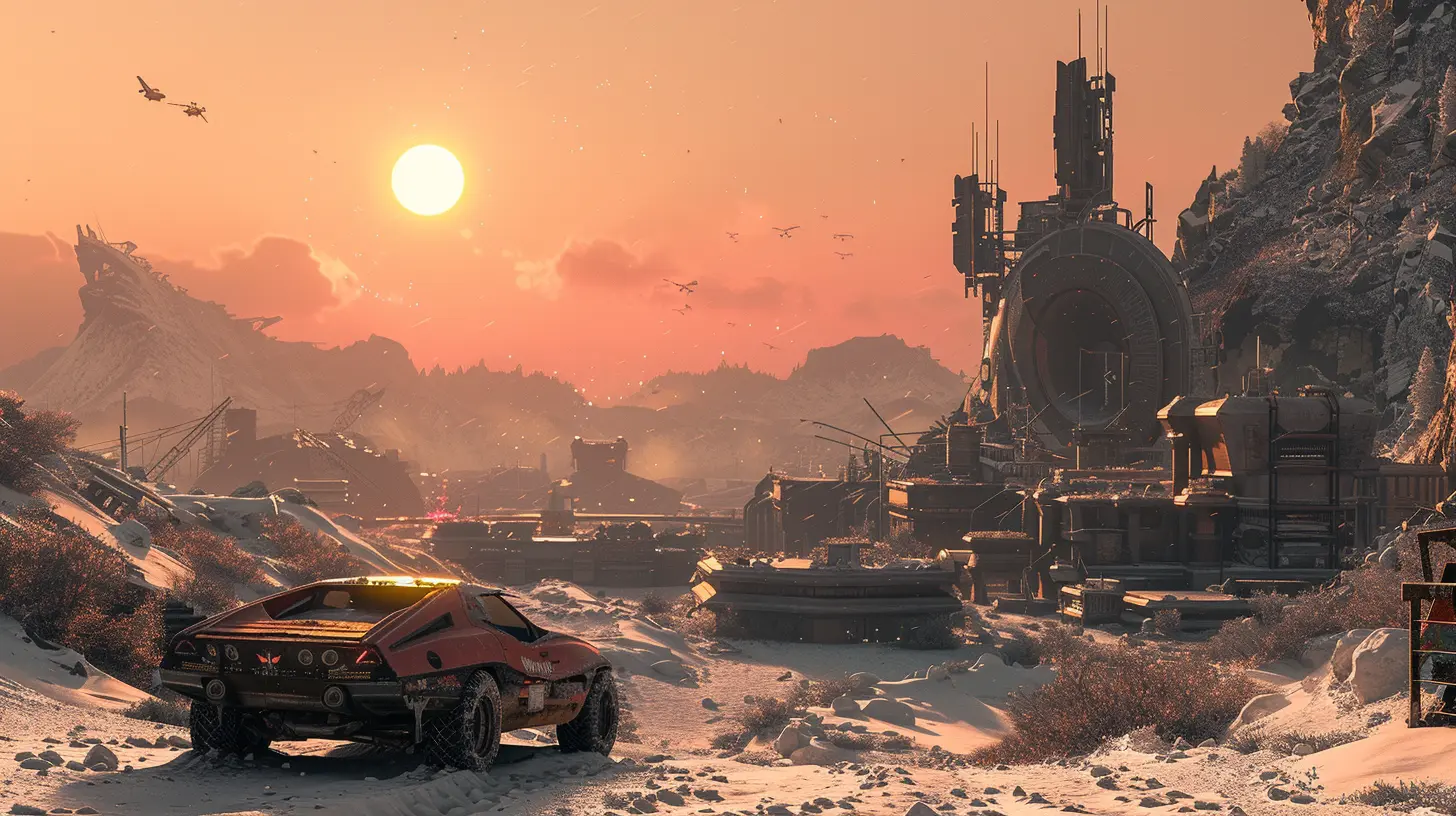
The Key Pillars of Player Freedom
Boundless Exploration
Open-world games excel at one thing: making you feel like an adventurer. Remember the first time you paraglided off a mountain in Breath of the Wild or took a detour in Skyrim just to see where that random path led? Moments like these are pure magic.Unlike linear games, where the environment feels more like a backdrop, open-world games make the world itself a character. It’s alive, breathing, and waiting for you to uncover its secrets. And the best part? It’s all on your terms.
Freedom of Choice
Another big shift? The power of choice. Open-world games don’t hold your hand and tell you what to do (well, most of them, anyway). You decide how to play. Want to go full stealth? Sure thing. Prefer to rush in, guns blazing? That works too.Games like Red Dead Redemption 2 take this even further, giving you moral dilemmas and nuanced decisions. Do you help the stranger on the side of the road or keep riding? It’s up to you, and every choice influences your story.
Dynamic Storytelling
Speaking of stories, open-world games have stepped up big time. Instead of spoon-feeding you a linear plot, they scatter pieces of the narrative across the map. It’s like assembling a puzzle—except in this case, you’re riding a dragon or piloting a futuristic hoverbike between pieces.Take The Witcher 3: Wild Hunt, for instance. Every side quest feels like its own mini-drama, complete with fleshed-out characters and meaningful outcomes. It’s not just about finishing the main storyline; it’s about discovering stories in every corner of the world. 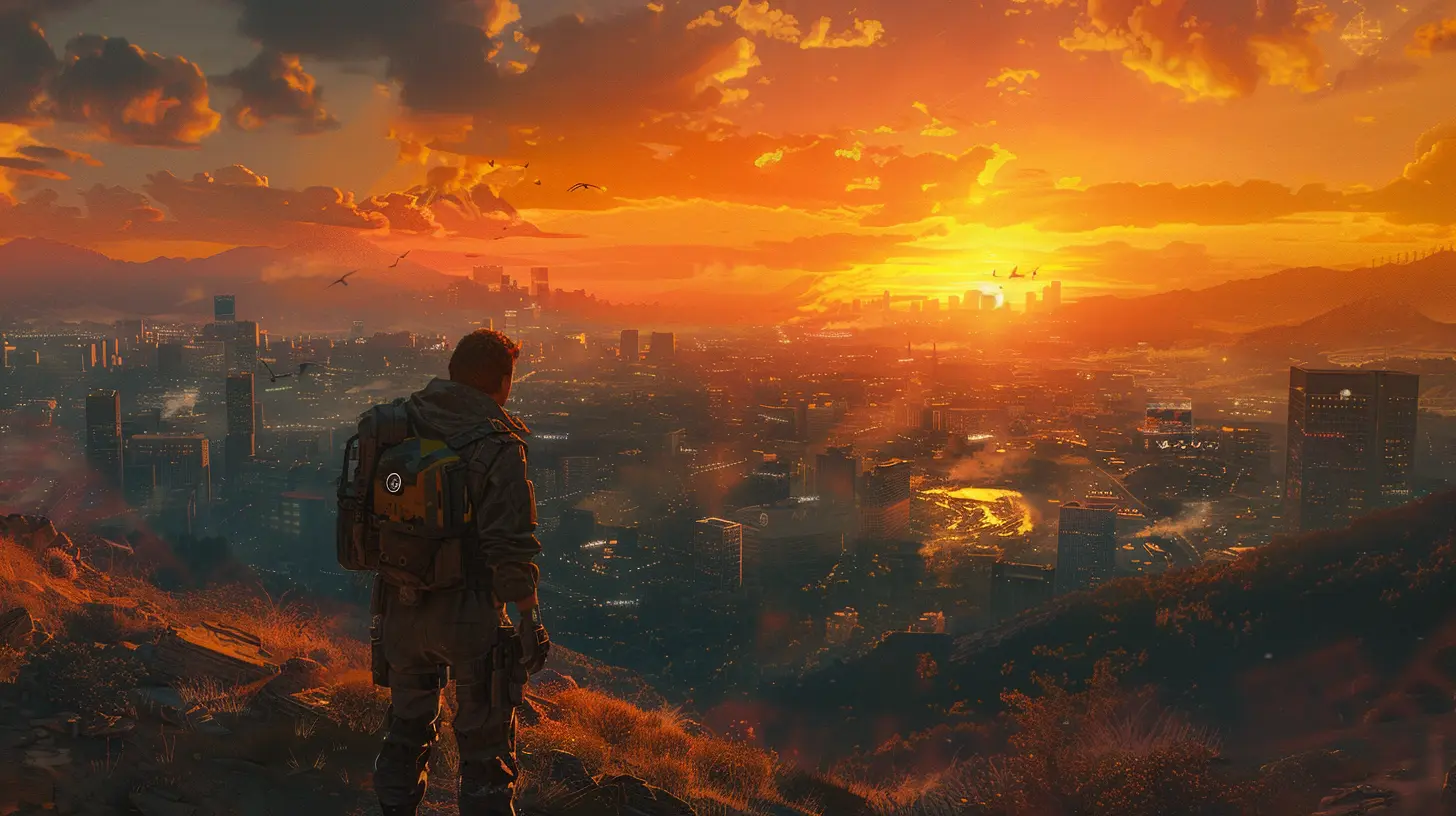
The Technology That Made It Possible
Of course, none of this would be possible without some serious tech wizardry. Advances in processing power, AI, and procedural generation have been game-changers (pun intended). Developers can now create sprawling landscapes filled with NPCs who feel alive, ecosystems that respond to your actions, and weather systems that add a layer of immersion.But it’s not just about size. Sure, bigger maps are impressive, but it’s the quality of the experience that truly matters. Open-world games focus on depth, making every inch of the world worth exploring.
Why We Love Open World Games
Let’s be real—open-world games tap into something primal. Humans are naturally curious creatures. We love to explore, conquer, and leave our mark. Open-world gaming lets us do all of that and more from the comfort of our couch.They also cater to every type of player. If you’re a completionist, you’ve got endless side quests and collectibles. If you’re a wanderer, the map is your oyster. If you’re all about combat, you can hone your skills through countless encounters. There’s something for everyone.
The Downsides (Yeah, They Exist)
Alright, open-world games aren’t perfect—let’s not pretend otherwise. Some games fall into the trap of quantity over quality, where the world is massive but feels empty (cough No Man’s Sky at launch). Others overwhelm you with too much to do, leading to something developers call “open-world fatigue.”And let’s not forget the dreaded backtracking. Sure, the map is huge, but do I really need to ride my horse for 20 minutes just to turn in a quest?
The Future of Player Freedom
So, where do we go from here? Open-world games will only get better. As technology advances, we’ll see even more immersive worlds, smarter AI, and interactive storytelling. Imagine a world where every NPC has their own agenda, where ecosystems react dynamically to your presence, and where VR lets you truly step into the game. Exciting, right?But one thing’s for sure—player freedom is here to stay. Open-world games have set the standard, and there’s no going back.
Final Thoughts
Open-world games didn’t just redefine player freedom; they blew the doors off what we thought gaming could be. They turned us from passive participants into active explorers, giving us worlds that feel alive and endless possibilities to make them our own.Sure, they have their quirks, but at their core, open-world games represent the ultimate gaming experience—freedom, choice, and adventure. And honestly, isn’t that what gaming is all about?
all images in this post were generated using AI tools
Category:
Open World GamesAuthor:

Whitman Adams
Discussion
rate this article
2 comments
Sabina Pratt
Ah, open world games, where I can spend hours “saving the world” while accidentally becoming a master chef or a squirrel whisperer! Who knew freedom meant crafting potions in a pixelated kitchen? It’s like choosing between being a hero or a culinary legend—why not both? Bon appétit, adventurers! 🍳🎮
October 25, 2025 at 2:51 PM

Whitman Adams
Absolutely! Open world games truly allow players to embrace their creativity and explore unexpected paths—whether it’s saving the day or mastering the art of cooking. It’s all about making your own adventure! 🍽️✨
Darius Patterson
Open world games have transformed player experiences by offering vast landscapes and countless choices, allowing for personal storytelling and exploration. This freedom not only encourages creativity and immersion but also empowers players to engage with the game world in unique ways, fostering a deeper emotional connection to their journeys.
July 24, 2025 at 4:47 PM

Whitman Adams
Absolutely! Open world games truly revolutionize player freedom, enabling personal narratives and deeper emotional engagement through expansive landscapes and choices.

